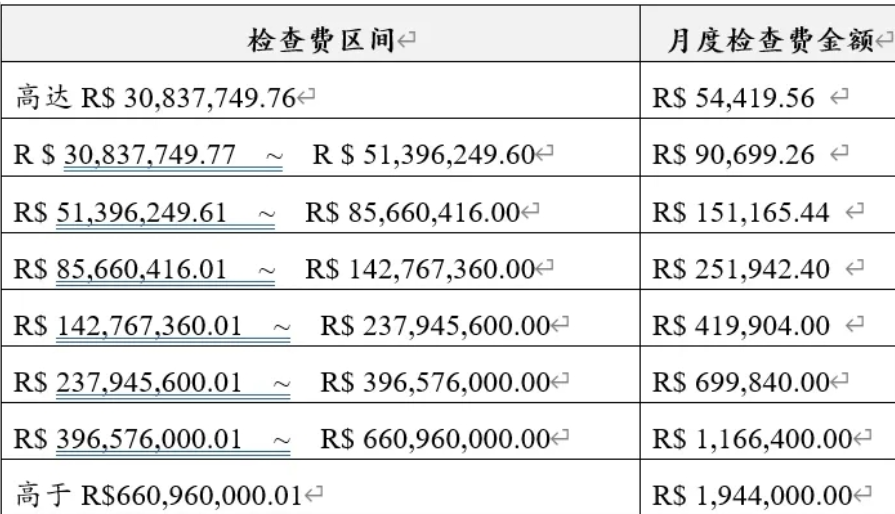
Legal Background
Before 2023, Brazil completely prohibited games of chance, only allowing licensed offline horse racing and lotteries to operate legally. According to Act No. 3688/1941, also known as the "Contravention Act," any game primarily dependent on luck is defined as a game of chance, with operators facing imprisonment from three months to one year and a fine. Brazil's recognition model includes two key elements:
Skill/Luck Assessment: Differentiating skill-based games from luck-based games, where the former does not constitute gambling, and the latter does.
Redemption Situations: Only scenarios involving financial gain or loss are considered gambling. Some confirmed cases (such as Fortune Tiger and Blaze) involve real money transactions, but there are no clear regulations for non-real money simulated gambling games yet.
Scope of Legal Application
According to Article 2 of the "Criminal Contravention Law," Brazilian law only applies to illegal acts within its territory. There is currently no evidence of the Brazilian government taking action against foreign entities operating via the internet. However, local KOLs and payment channels may be penalized for promoting gambling and money laundering. In 2023, due to gambling issues with the Blaze platform, female influencers promoting it on Twitter and Instagram were arrested.
New Laws and Licensing System
In 2023, Brazil officially opened up gambling licenses. The Act No. 14.790 passed on December 29, 2023, allows licensed operations of fixed-odds betting, covering "real sports-themed activities" and "virtual online gaming activities"—the latter referring to online gaming activities, competitions, or behaviors where the outcome is unknown at the time of betting. Meanwhile, online gambling is defined as "an electronic channel capable of virtual betting, where the outcome is determined by future random events generated from a rule system's defined numbers, symbols, images, or objects." This has expanded the development prospects for real money games in Brazil.
The conditions for applying for a gambling license include:
- Must be a legal entity registered under Brazilian law.
- Headquarters and administrative bodies must be located within Brazil.
- The company structure must include a Brazilian shareholder holding at least 20% of the shares.
- The license fee, known as "Authorization Consideration" (Da Contraprestação de Outorga), is 30 million reais (approximately 43.2 million RMB)/5 years, usable across three brands in its electronic channels. Payment must be completed within the day of notification of the application analysis conclusion, otherwise, the authorization process will ultimately terminate or the authorization will become invalid.
Taxation and Corporate Responsibility
Act No. 14.790 stipulates a gambling tax rate of 12% of total revenue, plus an inspection fee (Taxa de Fiscalização) calculated based on net revenue intervals. Bettors' net winnings are also subject to a 15% personal income tax (IRPF). As Brazilian companies, they are also required to pay corporate income tax (IRPJ), social contribution on net income (CSLL), social security tax (COFINS), and municipal service tax (ISS), among other taxes.
The Brazilian "Consumer Protection Law" establishes a system for denying corporate personality. When a company harms consumer interests, related companies may be held accountable. When a legal entity engages in abuse of rights, abuse of power, violation of laws, illegal acts or behaviors, or breaches regulations or terms that harm consumer interests, judges have the authority to deny its corporate status. This denial also applies when a legal entity goes bankrupt, insolvent, closes, or becomes inactive due to poor management.

Advertising and Compliance Requirements
The Brazilian Advertising Self-Regulation Council (CONAR) has updated the "Brazilian Advertising Self-Regulation Code," adding Annex "X" specifically regulating compliance matters related to relevant advertisements. Key points include:
- Advertisements must contain the gambling license logo; otherwise, they cannot be broadcast.
- Shell advertising is prohibited.
- Advertisements must clearly include the "18+" symbol or information stating "not suitable for children under 18," and the main characters in the promotional materials must be at least 21 years old.
- Advertising content must not aim to attract the attention of minors, such as not including symbols, graphic resources, animations, language, personalities, or characters from the children's world, nor using visual, auditory, linguistic, or written elements specifically targeting minors.
- No advertising should be placed on any channels, programs, or media targeting people under 18, and all available tools (such as blocklists and age restrictions) should be used to restrict minors' access.
- Websites/apps/promotional pages must have a pop-up asking if the user is of legal age before entering.
- Betting values and fixed odds information must be presented in Brazilian currency, along with related taxes.
- Information related to prize redemption must be included.
- Complaint and customer service contact information must be included (note that unlike other Spanish-speaking regions in Latin America, the official language of Brazil is Portuguese, which differs from traditional Portuguese in vocabulary, pronunciation, syntax, etc.).
- URLs, QR codes, etc., should be set up to allow consumers to click/scan to obtain information about promotions, advertiser identity, contact details, etc.
Future Outlook
The opening of gambling licenses in Brazil indeed paves a new path for the development of real money games in the region. However, many issues in the current legislative text, such as the definition scope of "online games," specific financial and technical requirements for licensed entities, etc., are still pending further clarification and explanation by the Brazilian Ministry of Finance. The Prize and Gambling Secretariat (SPA) established by the Ministry plans to regulate fixed-odds betting and will formulate 12 decrees in 2024, covering certification laboratories, advertising compliance, and agent authorization details, among other regulations.
For entities that have not paid for a Brazilian local license or have purchased a Curacao license, Brazilian authorities will take strict action. The opening of Brazilian gambling licenses, while bringing new opportunities, will also intensify compliance requirements and market competition.










